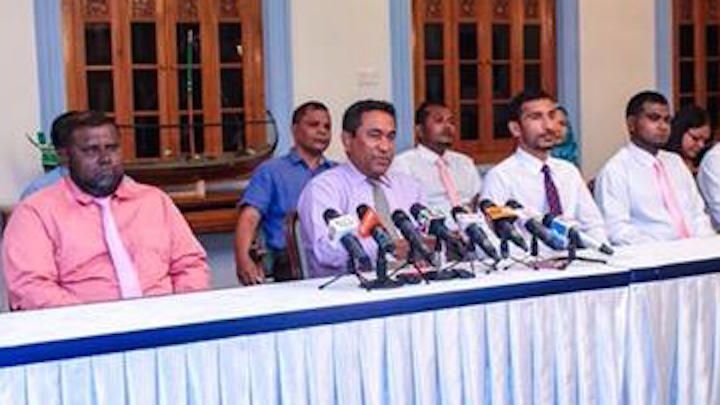Government will not bow to foreign pressure, declares President Yameen
Following renewed calls by the UN human rights chief and the UK for former President Nasheed’s release, Yameen said there are “things I will not do no matter how much pressure” is brought to bear on the government, insisting that releasing imprisoned opposition politicians would be unlawful as they were sentenced following independent judicial processes.

16 Sep 2015, 09:00
The government will not bow to mounting foreign pressure to release imprisoned former President Mohamed Nasheed, President Abdulla Yameen declared yesterday.
Speaking at a ceremony held in Muleeage to welcome five island councillors to the ruling party, Yameen said there are “things I will not do no matter how much pressure” is brought to bear on the government.
Yameen once again insisted that releasing imprisoned opposition politicians would be unlawful as they were sentenced following independent judicial processes.
The president’s remarks follow renewed calls from the UN human rights chief and the UK for Nasheed’s release at the 30th session of the UN Human Rights Council on Monday.
Become a member
Get full access to our archive and personalise your experience.
Already a member?
Discussion
No comments yet. Be the first to share your thoughts!
No comments yet. Be the first to join the conversation!
Join the Conversation
Sign in to share your thoughts under an alias and take part in the discussion. Independent journalism thrives on open, respectful debate — your voice matters.




